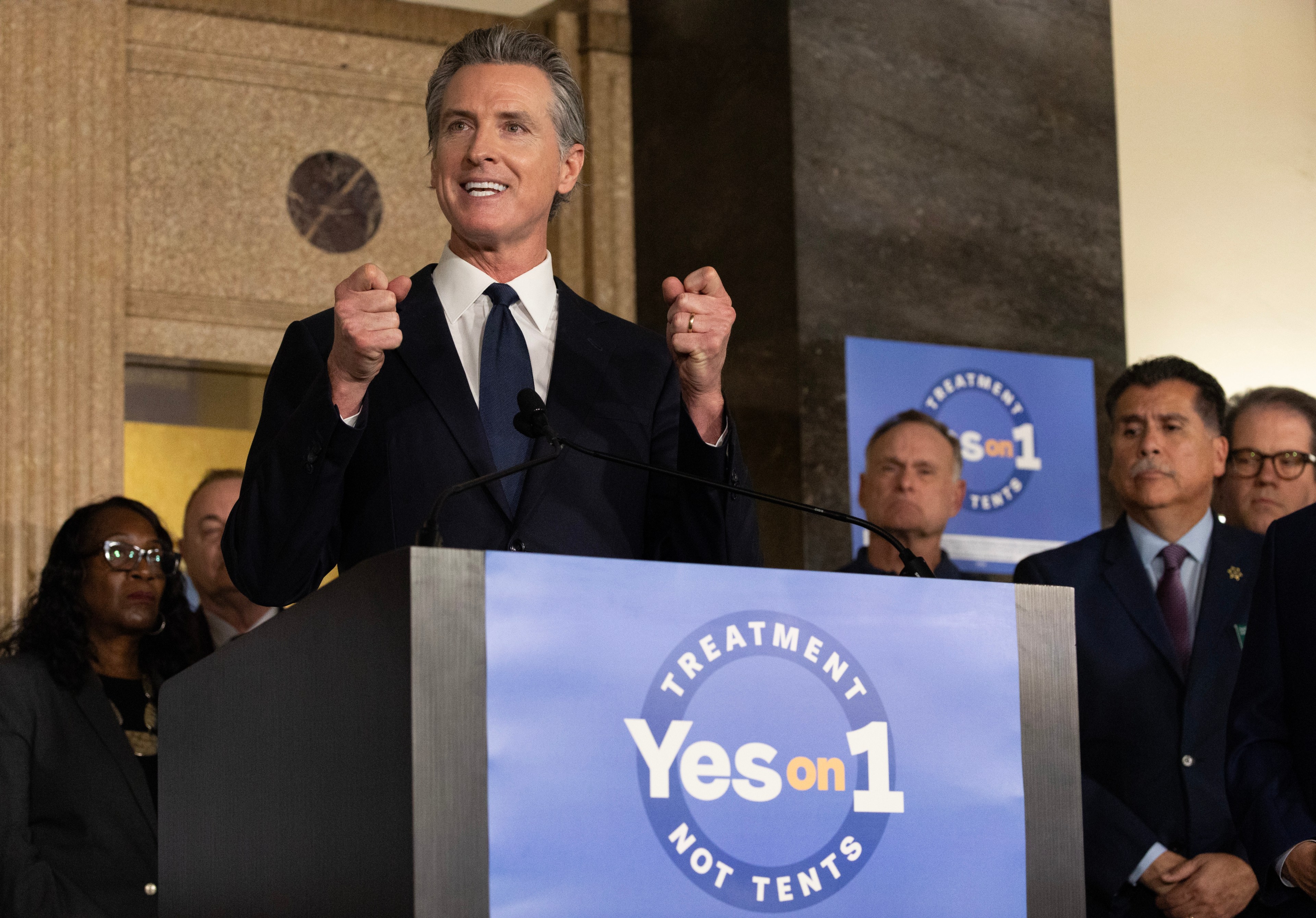Will Proposition 1, a $6.4 billion mental health initiative championed by Gov. Gavin Newsom, win approval from voters? On Wednesday evening, over a week after polls closed, “yes” votes were still outpacing “no” votes by only a slim margin.
With all precincts partially reporting Wednesday, 50.2% of voters were backing the measure. The yes’s and no’s were separated by 25,060 votes as counties continued to count vote-by-mail, provisional and other ballots.
In San Francisco, 73% of voters were approving the initiative.
According to the California Secretary of State’s office, there were still almost 800,000 ballots left to be processed as of Wednesday afternoon.
Prop. 1 would borrow $6.4 billion to create thousands of new mental health treatment beds. It would also modify a tax on millionaires that funds mental health services.
The only statewide measure on the ballot, Prop. 1 was backed by Newsom, who helped raise millions of dollars to persuade the electorate to support the initiative. The latest campaign finance reports show nearly $21 million was raised by supporters of Prop. 1. Opponents raised a meager $1,000.
The two-pronged initiative is intended to alleviate a projected shortage of 8,000 mental health beds at a time when demand is growing for youth and adult mental health services.
Most of the billions borrowed would go toward building 10,000 in-patient and residential treatment beds across the state. The remaining funds would pay for permanent supportive housing with units set aside for veterans with mental illness or addiction.
Opponents of Prop. 1—who include the Howard Jarvis Taxpayers Association and the League of Women Voters of California—argued it would increase the amount of revenue from the Mental Health Services Act going toward housing at the cost of existing mental health services.
